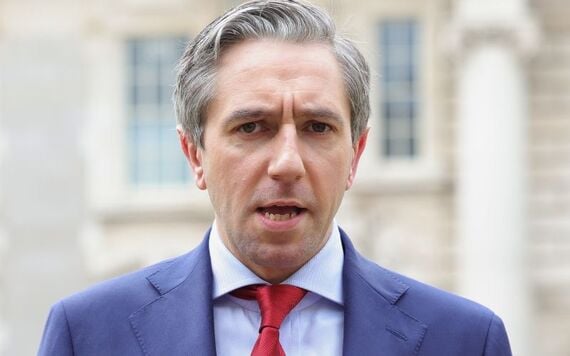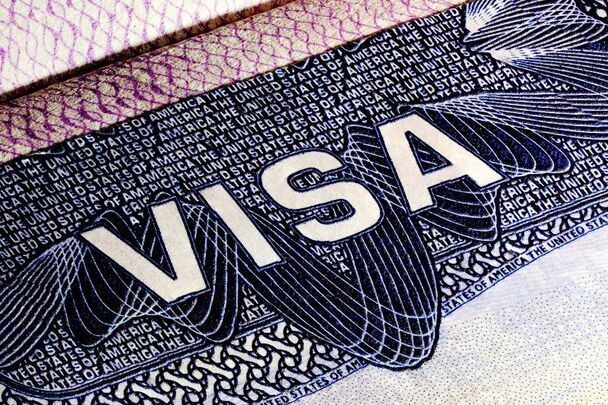Ireland's Tánaiste and Minister for Foreign Affairs has outlined the actions he is taking in response to the new social media vetting procedures for Irish students applying for US visas.
The Tánaiste said he is "very concerned" by the updated advice issued on Monday, June 23, by the US Embassy in Dublin.
In the update, the US Embassy in Dublin said that "all applicants for F, M, and J nonimmigrant visas will be instructed to adjust the privacy settings on all of their social media profiles to 'public.'"
Additionally, "visa applicants are required to list all social media usernames or handles of every platform they have used from the last five years on the DS-160 visa application form."
Taoiseach Micheál Martin told reporters in Dublin on Monday that he did not approve of the new vetting procedures for US visa applicants, deeming them "excessive."
I believe the measures now facing students seeking US visas are excessive, I don’t approve of them and I don’t agree with them.
One of the great things in the modern world has been the capacity for young people to travel. pic.twitter.com/fpuz22Unog
— Micheál Martin (@MichealMartinTD) June 23, 2025
"Deep concern, confusion, and apprehension"
In his own response on Tuesday, the Tánaiste said: "While US immigration policy is a matter for the US authorities and I fully respect the administration's right to determine their own immigration policy, this decision has understandably caused deep concern, confusion and apprehension for young Irish people who may wish to travel to the United States.
"Our relationship with the United States is deep and enduring. Importantly, it also sees thousands of people travel in both directions every year. The intergenerational, people-to-people relationship between the US and Ireland begins with the opportunities that both countries afford to young people. It is important that we work to protect this.
"Therefore, in light of these developments in relation to student visas, I have already and intend to take the following three actions.
"Last night, I have asked my officials to engage directly with the US Embassy here in Dublin and with the administration more widely in a bid to ascertain and provide as much clarity as possible about these new arrangements, particularly to those students who are due to travel in the coming months.
"I also asked my officials to engage with third-level institutions and organisations that provide services for students who wish to travel with the United States. This will be with the clear aim of providing as much clarity as possible on the impact of these new arrangements, relevant guidance and furthermore assessing what possible supports can be provided to young people who wish to travel to the United States in the coming months.
"Finally, with the new US Ambassador to Ireland due to formally take up his post next month, I intend to raise this matter with him as part of a wide-ranging engagement on issues that matter to both the US and Ireland as we seek to further strengthen our longstanding diplomatic relations."

Tánaiste Simon Harris. (RollingNews.ie)
Read more
"Chilling effect"
Meanwhile, the Social Democrats also expressed their concern on Tuesday, with TD Jen Cummins, the party's spokesperson on higher education, saying the new vetting procedures set a "deeply troubling precedent."
She said: “I am particularly alarmed by the chilling effect such a requirement could have on students and young people, who may now feel compelled to censor their opinions or delete their online history to avoid being refused entry to the US."
Cummins urged the Irish Government to raise the issue directly with the US administration.
She added: “This new requirement does not make anyone safer – it only makes international education less accessible, less fair, and less free.”
US embassy's new social media vetting requirement represents a serious overreach.
It undermines personal privacy, freedom of expression, and the longstanding educational relationship between Ireland and America.
Our govt must respond.@JenCumminsTD https://t.co/7o2fOB5sT0
— Social Democrats (@SocDems) June 24, 2025
And in the Dáil on Tuesday, Labour TD Duncan Smith asked the Taoiseach if he has "any words of comfort for the thousands of young Irish people who have to give over five years' worth of social media usernames?"
Smith said the procedures will have "a chilling impact on our young people and other applicants for visas," and asked what the Irish Government is going to do about it.
Smith's Labour colleague Senator Laura Harmon, the party's further and higher education spokesperson, separately said: "...forcing people to hand over years of personal online activity creates a chilling effect. People may feel they cannot speak freely or express themselves openly online.
"This is an unwelcome interference in private life and a step too far for any fair visa system."
Harmon welcomed the Tánaiste's commitment to action, adding that he must "make it crystal clear that this is an excessive, unjustified intrusion into people’s lives.
"An Tánaiste must ensure that the US hears Ireland’s concerns loudly and clearly.”
J1 visa vital for Irish students 🌍️
❝The new visa rules are excessive and intrusive. This is an unwelcome interference in private life and a step too far for any fair visa system.❞ @LauraHarmon01
👉 https://t.co/BW7YsUG8Ry pic.twitter.com/0Uhh57qLB8
— The Labour Party Ireland (@labour) June 24, 2025
"Another Trump assault on freedom of speech"
Speaking on RTÉ Radio's Today with Claire Byrne on Tuesday morning, Boston-based immigration attorney John Foley said: "There's no telling what they're looking for, and there's no telling how they'll be treated once [applicants] they get to the Embassy."
Foley said it was "more complicated" than just getting a new phone, as applicants will be required to provide their screennames or handles for the past five years.
He said: "You can list all of the screennames and passwords, but you can clean it up before you get here. Delete photos, text messages, and links that anybody working for Donald Trump might question.
"That would include photos of pro-Gaza demonstrations, and text messages and emails about Trump being a convicted felon or being found responsible for sexual assault or driving as many companies into bankruptcy - just get rid of that stuff.
"It's another Trump assault on freedom of speech. It doesn't solve an existing problem."
Foley continued: "In addition to getting rid of stuff, there's stuff that they should make sure that the officers see. Make sure there's data on the phone connecting you to your home country - photos of you with your parents, your family, and information about your GAA club, ties to Ireland.
"Because student visas are temporary visas, there won't be a need for an American wake because you'll be coming home."




Comments